| Srl | Item |
| 1 |
ID:
117496
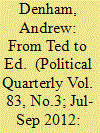

|
|
|
|
|
| Publication |
2012.
|
| Summary/Abstract |
Since 1965, British political parties have radically, and repeatedly, changed the ways in which they choose their leaders. In this article, I explain how and why these changes occurred and assess the consequences of the 'new' selection procedures adopted by four 'mainstream' parties: Labour, the Conservatives, the Liberal Party and the Liberal Democrats. In the first section, following Sjoblom and Stark, I outline a theoretical framework which purports to explain the criteria used by parties in parliamentary systems when choosing their leaders. I then examine the four parties in turn and consider two questions. First, how and why has the process of selecting British party leaders changed over time; and secondly, to what extent, and why, have the 'new' selection procedures adopted since 1965 produced different outcomes, resulting in the election of leaders who would not have been chosen had the decision rested with their party's elites and/or MPs alone?
|
|
|
|
|
|
|
|
|
|
|
|
|
|
|
|
| 2 |
ID:
086766
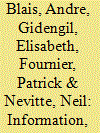

|
|
|
|
|
| Publication |
2009.
|
| Summary/Abstract |
This article assesses the aggregate effect of information shortfall on the outcome of the last six Canadian elections. Building on Bartels' analysis, the authors find an information effect in three of the six elections examined, and in each case the information gap benefits the Liberal Party. That finding raises the question: why does information matter in some contexts but not in others? It is argued in this article that the information gap is related to lack of visibility. When and where all political parties have some degree of visibility, the less informed vote like the better informed, but when and where a party is hardly visible, the less informed are less likely to support that party. The less informed appear to consider a smaller set of options when they decide how to vote.
|
|
|
|
|
|
|
|
|
|
|
|
|
|
|
|
| 3 |
ID:
095150
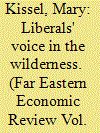

|
|
|
| 4 |
ID:
133791
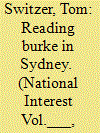

|
|
|
|
|
| Publication |
2014.
|
| Summary/Abstract |
TONY ABBOTT LIKES TO TELL THE STORY about his first visit to the United States as a newly elected member of the Australian Parliament. It was 1995, and he was widely seen as a rising star in the center-right Liberal Party, where the word "liberal" still means more or less what it meant in the nineteenth century. He had also distinguished himself as a leading opponent of the Labor government's ill-fated proposal to replace Australia's constitutional monarchy with a republic.
|
|
|
|
|
|
|
|
|
|
|
|
|
|
|
|
| 5 |
ID:
155894
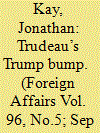

|
|
|
| 6 |
ID:
057706
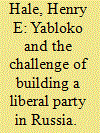

|
|
|